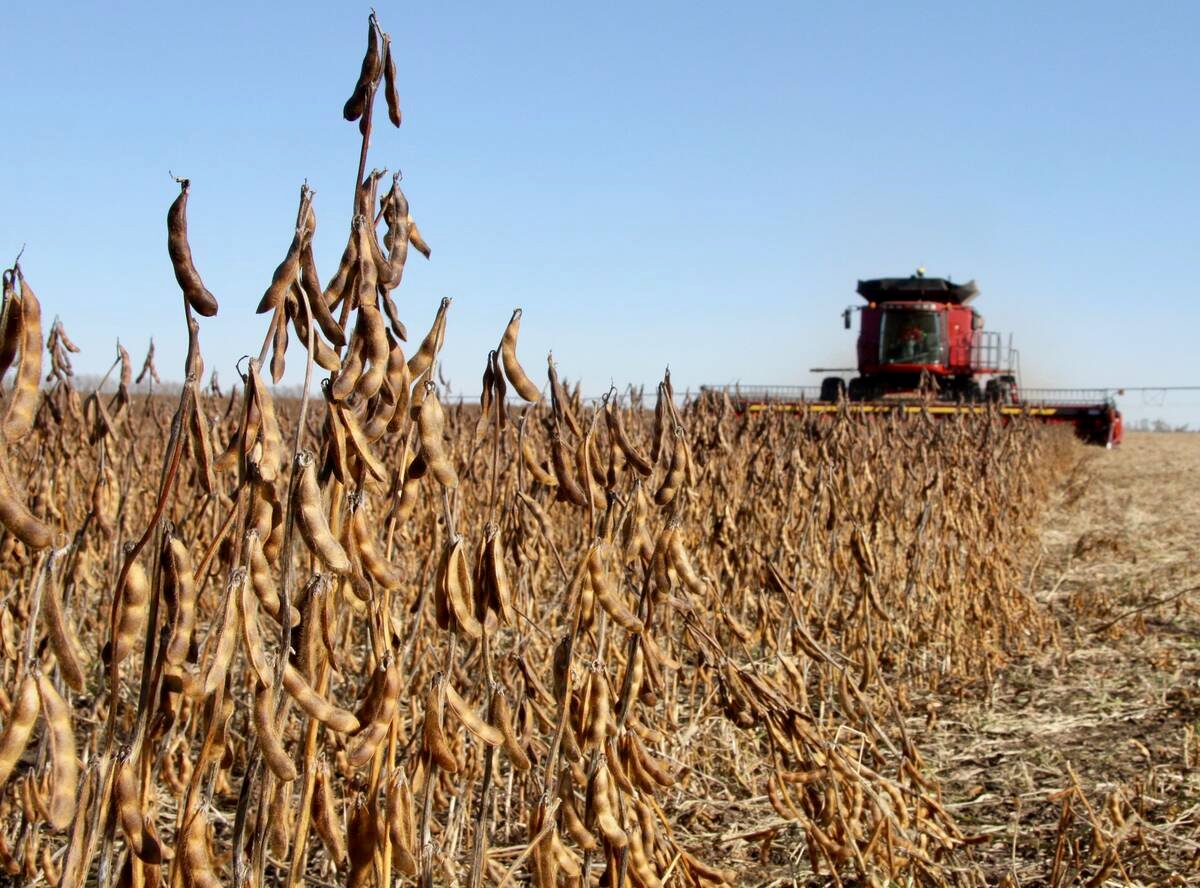GHENT, Belgium – Amid the high hopes, optimism and frustrations that come as Europe rushes to develop a biodiesel industry, Wim Soetaert can’t help but talk about how the bio revolution already is changing the landscape of his native Flanders.
It’s all about yellow as area farmers begin to respond to the opportunities as biodiesel looks for rapeseed oil feedstock.
“It is fantastic,” says the Ghent University biochemical technology professor who is a key player in trying to launch Belgium’s first biodiesel plant in this port city northwest of Brussels. “You drive in the countryside and you see a colour I’ve never seen before.”
Read Also

U.S. soybean crop was not all roses this year
The USDA is forecasting record U.S. soybean yields but for some growers it was a disastrous year due to excess moisture.
So far, it is small scale – perhaps 2,800 acres this year and a predicted 28,000 acres next year.
But with plans to expand the industry to capture at least 5.75 percent of the fuel market by 2010 and dreams of supplying a third of the demand by 2030, the industry has visions of billions of dollars of investment and millions of acres of rapeseed across Europe to provide vegetable oil feedstock to the plants.
Last year, biodiesel production increased 65 percent to 3.2 million tonnes. A combination of government regulations, tax incentives for biofuel and government subsidies to “energy crop” producers has led to expectations of continued substantial growth this decade.
European biodiesel industry watchers also concede that the planned expansion means Europe will have to import some feedstock and Canada’s canola crushing industry is one likely source. Europe will not import canola seed to be crushed because of suspicion of genetically modified seeds, but oil will be welcome.
“I think this will be a real opportunity for Canada,” said Luc Werring, principal adviser to the European Commission directorate-general, transport and energy.
“The question we have is if there is enough crush capacity in Canada. We know that seed is sent offshore to be crushed already.”
Raffaello Garofalo, secretary-general of the European Biodiesel Board based in Brussels, said the European rapeseed industry will expand to meet some of the demand but even with millions of new acres in recently joined eastern European countries, Europe’s domestic supply of rapeseed oil will not be enough.
“My message to Canada is to encourage growth of the industry there and to suggest that there will be an opportunity for exports,” he said. “This is an industry with a tremendous growth potential.”
The European biofuel frenzy is driven by the political objectives of improving energy security, helping to meet European Union climate change commitments and helping farmers and rural Europe cope with the reduction in direct commodity subsidies and the growth of crop surpluses since recent agricultural policy reforms.
For Europe’s farmers, it is seen as a potential income and marketing boon. Rapeseed prices have been rising and farmers, who now plant more 30 million acres of rapeseed, are expected to dramatically increase the base.
European Commission policy now provides $26 per acre in incentive on up to 3.7 million acres of rapeseed and other energy crops. The European farm lobby COPA is lobbying for an expansion of the acreage and at least a doubling of the incentive.
“It is a fear, because farmers are not much involved in the bio value-adding industry, that it will be just another low price market and if rapeseed prices do rise, there will be complaints from other parts of the industry,” COPA crops specialist Marie-Christine Ribera said.
“Still, we see this as a boost, a way to provide a new market, to keep acres in production, for farmers to stay in business and for farmers to get the image of helping with an environmental project.”
Meanwhile, across Europe, private investors and public officials are figuring out how to fit into the new biofuel priority.
In Ghent, Soetaert and members of the Ghent Bio-Energy Valley project figure they have found a way.
They have designed a project in
Ghent harbour that includes rapeseed imports, crushing capacity, biodiesel blending in an existing petroleum operation and then export. Cargill and several private companies are working in partnership with researchers and promoters at the university. It could be operating by late 2007.
But there are political hurdles before then, illustrating part of the growing pains of the European industry.
Belgium, with no biofuel industry, has decided to regulate it through quotas to be issued in autumn. Soetaert said the Bio-Energy Valley project, as an integrated design, is the most logical first project for the country.
But it needs a large portion of the allotted quota to make the construction feasible. There are competitor proposals.
“Nobody knows how it (the quota allocation) will be decided and no doubt, it will be political,” he said. “But the prime minister of Belgium is from Ghent. Need I say more? We say we want to become the leading bio-port in Europe. That may appeal to him.”














